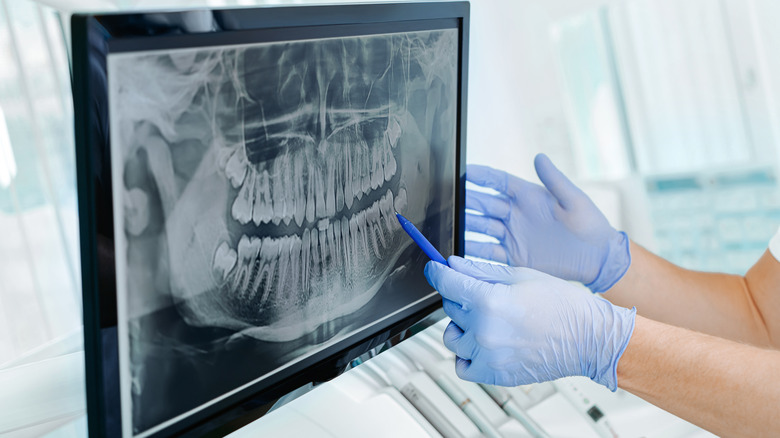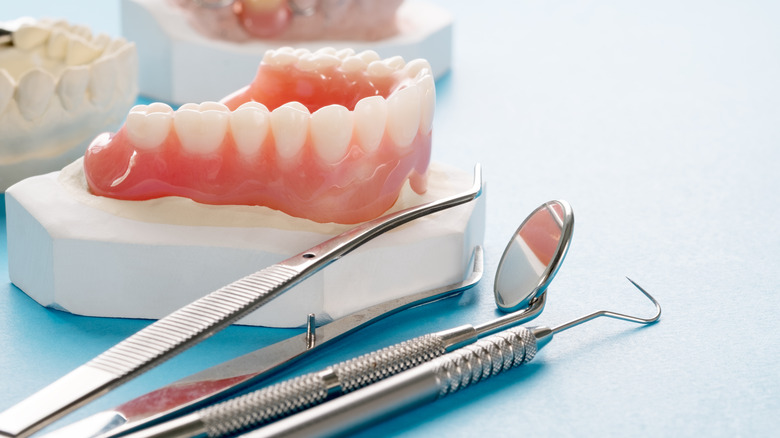If This Happens To Your Teeth, It Could Be A Sign Of Osteoporosis
Osteoporosis is common among adults over a certain age, affecting more than 53 million Americans who already have the condition or are at risk of getting it, according to the National Institutes of Health. It is a condition that results in low bone density, something that starts affecting people as they enter their 40s and 50s (via the National Institute on Aging).
Although it is largely seen as a condition that affects women, osteoporosis can also affect men. The National Institute on Aging states that women start to lose bone density earlier, but by the time people reach the ages between 65 and 70, men and women lose bone density at roughly the same rate.
The most startling thing about osteoporosis is that it is often labeled a "silent disease" because, unlike other diseases, it has few outward signs. It does not cause a person to run a fever or develop a cough. There are, unfortunately, few signs of the disease unless someone becomes noticeably prone to fractures or breaks in their bones, per the National Institute on Aging. There is, however, one sign that may act as an early warning when someone may develop osteoporosis. And their dentist may just be the one to spot it.
A loose tooth may indicate poor bone health
Like much of the science around aging and its effects on the body, the link between osteoporosis and oral health still has years of research ahead of it, according to the National Institute of Health. There are, however, a few things that researchers have already discovered about the disease and how it affects a person's teeth.
Osteoporosis affects the density of a person's jaw bone, just as it affects the density of the rest of their bones. When the condition progresses to the mouth, a person may end up experiencing the sensation of loose teeth (via the NIH). If they already wear dentures, the person may feel like their dentures are always loose or that they never fit properly. Both sensations stem from the fact that the jaw bone anchors teeth as well as dentures. When the jaw bone loses density, these anchor points are no longer as reliable as they once were.
The NIH goes on to say that it is not known if the usual treatments for osteoporosis may benefit jaw density as they do other bones. It's an area of the disease that is still under research. It is still a good idea to take proactive measures, however, to improve bone health. The National Institute on Aging suggests eating foods high in calcium and vitamin D as well as taking up activities that put weight on the bones such as hiking, walking, or weightlifting.


